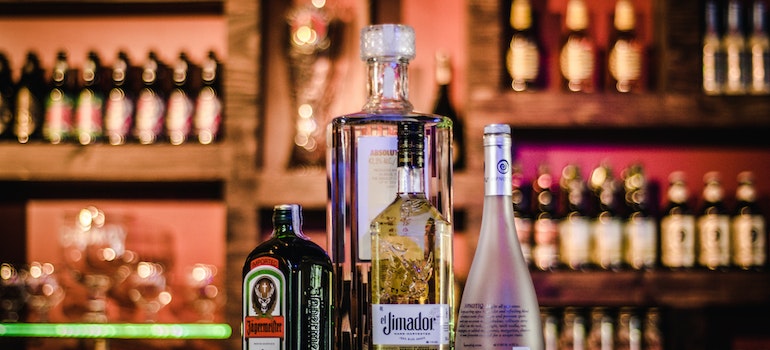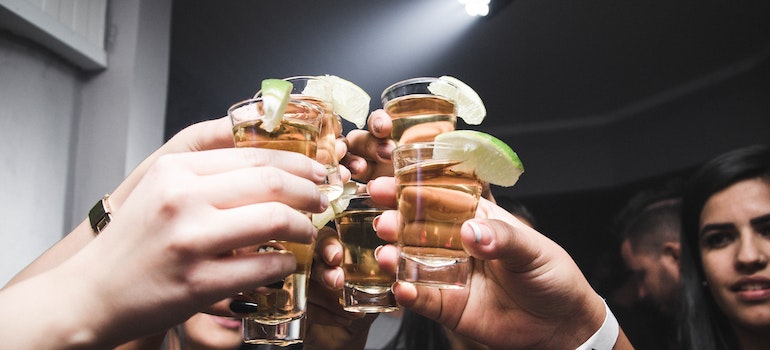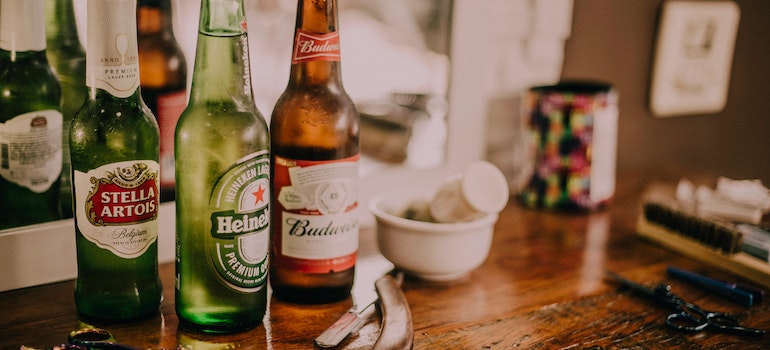If you’re asking yourself do you have a drinking problem, then the answer is more likely to be yes than no. But there’s good news too – recognizing an addiction problem is always the first step toward solving it, either by changing your habits before it’s too late or by seeking treatment in drug and alcohol rehab in West Virginia. In a society where drinking (even excessively) is normal, however, it can be difficult to know when you’ve crossed the line from partying too hard to being addicted. So what are some of the signs to be on the lookout for?
The importance of recognizing an addiction problem
Alcohol addiction doesn’t just go away. By the time you have a problem, you are both mentally and physically dependent on it. At this point, simply stopping is not really an option. Even if you have the strength of will to not drink anymore, the withdrawal symptoms will be unpleasant and can even be dangerous. You’re better off detoxing under medical supervision and start an intensive outpatient program WV to help you get sober. But in order to get help, you must first recognize that you have a problem. The sooner you do that, the sooner you can start to turn your life around.

Early intervention minimizes the damage addiction can do to your life
Alcohol addiction can wreak havoc on your life. While alcohol is not the most expensive substance you can be addicted to, the costs do add up over time. On top of that, you may lose your job if you start showing up to work drunk. This means you’ll be without an income and with most of your funds going toward supporting your habit, you won’t have much left for other necessities. This can lead to a whole host of problems; you might develop serious health problems if you avoid paying for a doctor and stop feeding yourself well or even lose your home if you default on a mortgage. On top of all that, your relationships with family and friends will almost certainly suffer.
What makes these issues worse is that people who abuse alcohol often also abuse other substances. In the best case scenario, this ends with you in stimulant rehab WV. But given that many drugs are dangerous or even deadly to mix with alcohol, you may find yourself in hospital instead. Either way, alcohol addiction can have devastating consequences on your health and life in general.
The longer you abuse alcohol, the more likely addiction is to ruin your life. Conversely, the sooner you seek help, the less time you will have to cause harm to yourself, to your life, and to those around you. In other words, recognizing an addiction problem early could literally save your life.
The earlier you get into rehab, the better your chances of a successful recovery
Alcohol addiction is an illness. Like any illness, it gets progressively worse the longer you leave it untreated. In fact, there are four stages to every addiction. The stages rank the severity of addiction in a range of .5 to 3 where .5 is someone who is at risk of developing an addiction and 3 is someone who is entirely dependent on substances.

If you do not recognize that you have a problem early on and continue to drink, you will eventually progress to higher stages. And the more severe your addiction become, the more extensive of an intervention you will need in order to leave alcohol behind. So if you recognize you have a drinking problem when you’re still only at risk for developing an addiction, changing your habits is often enough. But once you’ve developed an addiction, especially a moderate or severe form of it, you’ll need drug and alcohol rehab. Of course, with professional help, any severity of addiction can be treated but not with equal ease or success. The longer you are addicted, the more difficult treatment becomes and the lower your chances are of maintaining sobriety after rehab.
Knowing whether you have a drinking problem can help you recognize addiction in others too
People with alcohol addiction are rarely alone in their drinking. Many grew up with alcoholism in the house or started drinking under the influence of friends. Once you become addicted, you will likely start spending more time with other heavy drinkers. This means that there’s a good chance someone in your life is also an alcoholic. Whether you are still in addiction therapy in West Virginia or have already completed the program, you will be in a position to spot the signs of alcoholism in others once you’ve learned what they are from personal experience. You can then help your loved ones realize they need help and make sure they don’t suffer more due to alcoholism.
Why is recognizing an addiction problem difficult when it comes to alcohol?
When talking about addiction, most people picture someone with a very severe substance abuse problem – an intravenous drug user or a homeless man hugging a bottle. But that’s not what addiction looks like for everyone all of the time. And even when it does, it doesn’t become so bad overnight. Instead, it usually starts out relatively innocuous and gets worse gradually. For many people, a drinking problem does not become apparent until it’s all too late. This makes it all the more important to learn the warning signs of alcoholism as there are many things that may be clouding your judgement as you try to answer the question of “Do you have a drinking problem?”.
The prevalence of alcohol
People often associate addiction with criminality. After all, the sale of most drugs are illegal or at least highly controlled. This is certainly true of substances like meth, cocaine, or heroin. But it is not true for alcohol and nicotine, for example. Both alcohol and nicotine are perfectly legal all accross the country and their sale is only restricted by age. In some states, the same is true for marijuana. But the fact that the people in marijuana rehab centers broke no laws does not make them less addicted and hardly anyone would argue that. Yet, many people are under the false impression that something as easily available as alcohol or nicotine cannot possibly be very dangerous.

We as a society have stopped thinking of alcohol as a drug one can easily become addicted to. Many of us regularly purchase, store, and drink alcohol without giving it a second thought. It’s simply present in our everyday lives in the same way chocolate or fast food is – we know it’s unhealthy in excess, but we don’t really think of it as dangerous. In other words, alcohol as it stands today does not fit in with our ideas of addiction as something that happens outside of the law, in dark alleys and needle dens.
If we don’t think of alcohol as addictive, becoming addicted to it seems less plausible to us. This can lead to missing the warning signs and not noticing the addiction until it gets too severe to ignore. So it’s important to remember that no matter how legal, common, and normalized alcohol is, it is still a substance one can easily become addicted to.
Drinking culture
It’s not just that you can access alcohol; you are also expected to. Alcohol is built into our culture as one of the big pleasures of adulthood. As children, we see our parents drink on special occasions and hear about the drunken parties our older siblings attend. Many of us look forward to turning 21 and being able to buy beer, go to bars, and get drunk for the first time. In other words, we are conditioned to think of alcohol in a positive light. Alcohol is something that we are supposed to enjoy; it pairs well with meals, it relaxes us, it helps us have fun.

The idea that alcohol is a staple of fun and enjoyment in adulthood is so prevalent that if you don’t drink, you are seen as weird. This attitude is especially prevalent among young adults. In fact, research shows that only a third of Americans over 18 do not consume alcohol. More concerningly, as many as 20% engage in moderate to severe drinking which can be a precursor to addiction. This normalization of drinking makes recognizing an addiction problem difficult because seeing someone drink, even regularly and even excessively, does not necessarily ring any alarm bells.
Think about it – if you go out with a friend every weekend and they always get drunk, do you immediately jump to the idea that they have a drinking problem? Probably not. After all, most everyone drinks and gets drunk sometimes. And the truth is that excessive drinking once in a while really doesn’t have to be a sign of an addiction. But there is a line and the normalization of drinking makes it hard to see when that line is crossed.
Misconceptions about alcohol and alcohol addiction
Despite the fact that alcohol is widely present in our society, many people believe completely baseless myths about it. You might, for example, still think that alcohol warms the body or that you will only get a hangover if you mix drinks. These things are simply not true. But more concerning are the misconceptions about alcohol addiction and alcohol addiction treatment in West Virginia. Many people still think that:
- you cannot develop an addiction if you only drink weak alcoholic drinks (like beer, cider, or even wine)
- being able to drink a lot is a sign of strength of character and something to be admired rather than a sign of increased tolerance due to frequent drinking
- alcoholics drink everyday; if you can hold out for a few days, you don’t really have a drinking problem
- it is obvious when someone is addicted to alcohol because they are always drunk and can’t function in day-to-day life
- it is easy to stop drinking even without treatment because alcohol doesn’t cause such strong addiction as drugs
None of these things are true so if this is what you believe, you won’t notice alcohol addiction until it’s too late. Many alcoholics are able to hide their addiction for a long time. If you expect them to behave like someone with a severe addiction immediately, you won’t notice the problem until it really is a severe addiction.
Functional alcoholism
People who drink regularly develop a higher tolerance to alcohol. This makes them capable of maintaining a level of self-control and mental capacity even when they are drunk. In fact, rehab centers for professionals in WV are full of people who were perfectly able to continue working in important positions even while drinking heavily. You probably know these people as functional alcoholics. They are able to continue living their lives mostly normally and hide their addiction. But the fact that they are not always and completely incapacitated by alcohol makes it easier for them to deny and hide their addiction.

Denial
It is common for people with substance use disorder to be in denial about their condition. They’ll say that they have control over their habit. Or they’re drinking because they want to, not because they need to. This is even more common among alcoholics. Because they are often able to obtain alcohol legally, drink it openly, and live more or less normally with their addiction for a relatively long time, it often takes them longer to realize they need addiction treatment in WV than it would for someone addicted to a controlled substance.
Recognizing an alcohol addiction problem in yourself
You probably think that if you had a drinking proble, you’d know it. But things are not quite so clear-cut. Denial, whether conscious or subconscious, can be very powerful. The only way to combat it is to try to examine your situation objectively. There’s no need to feel defensive or ashamed if you suspect you might have a drinking problem. Addiction to alcohol is a mental health disorder (a treatable and curable one at that). Identifying it is in your best interest so there’s no reason to avoid facing the truth.

Symptoms of alcohol addiction to be on the lookout for
Drinking in and of itself is not necessarily a cause for concern. It’s unhealthy habits surrounding drinking as well as changes in those habits that should worry you. So when is it time to start looking for rehab for yourself? Here are some of the things that should worry you:
- you drink more now than you used to and you can’t control it
- you drink more frequently than you used to and you can’t control it
- you’ve developed a tolerance to alcohol so you need to drink more in order to feel the same effects as before
- you don’t drink for pleasure or don’t derive pleasure from drinking anymore; instead, you drink just to feel okay and normal
- you drink in secret or you hide from others just how much you drink
- when you go too long without drinking, you experience withdrawal symptoms (irritability, nausea, tremors)
- you prioritize drinking – you spend money on alcohol instead of necessities and go drinking instead of enjoying a hobby
- you experience a lot of blackouts due to heavy drinking
- despite negative consequences (legal, social, professional, or medical), you can’t stop drinking
Recognizing an alcohol addiction problem in others
Many people cannot recognize that their drinking has become an addiction. But if you know what to look for, you may notice some has a drinking problem before they do. In that case, you’ll want to intervene. Your timely reaction can be of great help to your friend or family member. However, you should broach the topic carefully. Being aggressive and judgmental will almost certainly cause your loved one to become defensive and push you away. So don’t accuse them of anything and don’t make them feel like their addiction is somehow a personal failing. Instead, show them love and support. They’ll need it as they face the uphill battle toward sobriety.

Signs that someone you know may have a drinking problem
If you suspect someone you know has developed an addiction to alcohol, you should pay closer attention to their behavior and attitudes around drinking. You’ll want to start looking for rehab for loved ones if you notice that:
- they drink excessively and frequently
- they often talk about drinking or being drunk
- they’re drunk more often than not when you see them, regardless of the occasion or time of day
- they regularly drink well over their limit
- they no longer participate in activities that previously brought them joy, choosing to drink instead
- alcohol affects them less or differently than before
- their breath or clothes often smell of alcohol
- they exhibit physical signs of addiction: weight loss, dry skin, brittle nails, hair loss, signs of ageing, yellow eyes, poor hygiene
- they hide alcohol around the house, in their car, or at work
- when they haven’t had a drink in a while, they become irritable or get physically sick
- they can’t seem to control their drinking: they drink when they say they won’t, can’t cut down on their drinking even when they try, and drink at inappropriate times
- they’ve suffered negative consequences such as job loss or broken relationships due to drinking
- they are defensive, angry, guilty, or ashamed when you bring up their excessive drinking
Do you have a drinking problem? You can relax if…
…you drink irregularly or in moderation. There’s no need to demonize alcohol or drinking. Many people do enjoy an occasional drink without developing an addiction. It is even acceptable to get drunk occasionally as long as it doesn’t become a habit. It’s all about patterns and control. If you have a drink or two every week or get drunk at holiday parties but are otherwise not a heavy drinker, you have nothing to worry about. It’s only a problem if you can’t stop.
Do you have a drinking problem? Probably not, but be careful if…
…you’re developing a pattern of regular and/or excessive drinking. You may think that a glass of wine with dinner every night is not a big deal. But it is a habit and we all know how hard habits are to break. If you’re not careful, it won’t be hard to turn that habit into an addiction. Things only get more concerning if you drink heavily. Heavy or excessive drinking is considered to be more than 15 drinks a week for men and more than 8 drinks a week for women. This much alcohol on a regular basis is cause for concern.

If you recognize yourself in these descriptions, you may not be addicted yet at this point but you should reconsider your drinking habits. The line between habitual drinking and addiction is a thin one as is the line between heavy drinking and addiction.
Do you have a drinking problem? You probably do or will in the future if…
…your drinking is no longer for pleasure. This is one of the biggest warning signs in the early stages of addiction and can make recognizing an addiction problem easy. It means you’re drinking not because you want to but rather because you need to. Perhaps you cannot imagine a meal with something to wash it down with. Or maybe you rely on liquid courage in social situations and can’t do without it. Or you could simply be irritable a lot and using drinking to calm you nerves. You may not realize this, but what you’re experiencing are cravings. If you’re drinking to reach your baseline rather than to treat yourself, then you have a problem.
At this point, you’re either walking the line between habit and addiction or have already crossed it. Either way, you’d benefit from cognitive behavioral therapy for addiction. CBT will help you identify and then rectify harmful thought patterns that lead to drinking. Your therapist will help you make the connection between your emotions, thought, and actions. You will then be able to spot your triggers and redirect toward something healthier than drinking.
Do you have a drinking problem? Yes and you should seek help if…
…you can’t control your drinking. The biggest giveaway that you have an alcohol addiction is your inability to resist it. This can manifest in different ways. For example, you might have lost control over how much you drink; you cannot stop after one, two, or three drinks. Instead, you keep drinking until you can’t anymore. This type of pattern is called binge drinking – you may not drink as often as some alcoholics, but when you do, you do so excessively. Or you may have lost control over when you drink. Instead of drinking in socially acceptable settings, you drink all the time – in the morning and early afternoon, at work, while driving, etc. This is the type of drinking that most people will identify as an addiction.

If you have reached this point, then it’s definitely time to seek professional help. Check into a residential rehab program WV for an intense treatment under medical supervision for the best chance at sobriety. You’ll be under medical supervision and have no access to alcohol – it’s the best setting for alcoholism recovery.
Recognizing an addiction problem: the next steps
After recognizing an addiction problem in yourself or others, the most important thing you should do is to reach out for help. Tell a trusted friend or close family member about your struggles. Ask them to get rid of the alcohol in your house and stay with you while you detox. Or better yet, look into treatment programs in the area because if you have a drinking problem, you’ll probably need professional help to get sober. The right combination of medication and therapy can make your recovery much easier and more successful.



